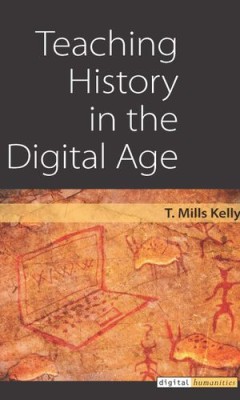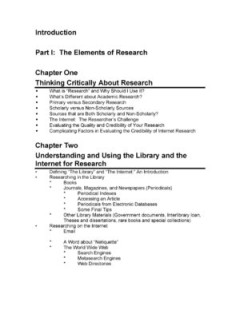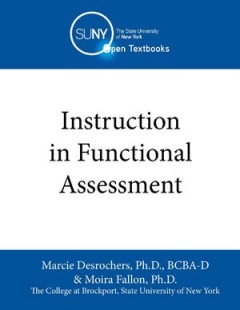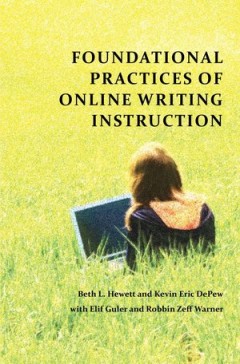Filter by

Teaching History in the Digital Age
Although many humanities scholars have been talking and writing about the transition to the digital age for more than a decade, only in the last few years have we seen a convergence of the factors that make this transition possible: the spread of sufficient infrastructure on campuses, the creation of truly massive databases of humanities content, and a generation of students that has never know…
- Edition
- -
- ISBN/ISSN
- 9780472900275
- Collation
- -
- Series Title
- -
- Call Number
- -

The Process of Research Writing
The title of this book is The Process of Research Writing, and in the nutshell, that is what the book is about. A lot of times, instructors and students tend to separate “thinking,” “researching” and “writing” into different categories that aren’t necessarily very well connected. First you think, then you research, and then you write. The reality is though that the possibilities a…
- Edition
- -
- ISBN/ISSN
- -
- Collation
- -
- Series Title
- -
- Call Number
- -

Instruction in Functional Assessment
Instruction in Functional Assessment introduces learners to functional assessment (F.A.), which includes a variety of assessment approaches (indirect, observational and experimental) for identifying the cause of an individual’s challenging behavior for the purpose of designing effective treatments. F.A. is mandated by federal law and is a recognized empirically based approach to treatment of …
- Edition
- -
- ISBN/ISSN
- -
- Collation
- -
- Series Title
- -
- Call Number
- -

Foundational Practices of Online Writing Instruction
Foundational Practices of Online Writing Instruction, edited by Beth L. Hewett and Kevin Eric DePew, with associate editors Elif Guler and Robbin Zeff Warner, addresses the questions and decisions that administrators and instructors most need to consider when developing online writing programs and courses. Written by experts in the field (members of the Conference on College Composition and Com…
- Edition
- -
- ISBN/ISSN
- -
- Collation
- -
- Series Title
- -
- Call Number
- -
 Computer Science, Information & General Works
Computer Science, Information & General Works  Philosophy & Psychology
Philosophy & Psychology  Religion
Religion  Social Sciences
Social Sciences  Language
Language  Pure Science
Pure Science  Applied Sciences
Applied Sciences  Art & Recreation
Art & Recreation  Literature
Literature  History & Geography
History & Geography